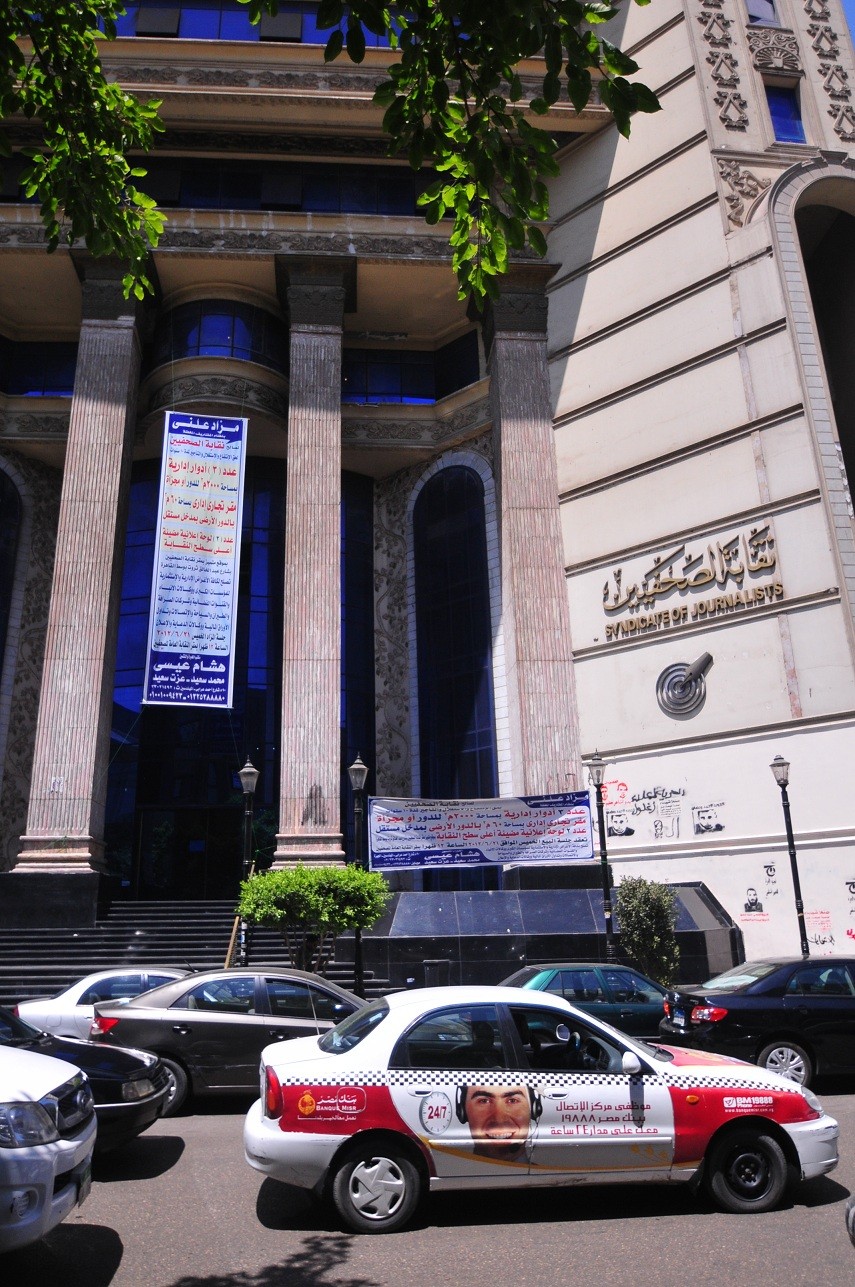With a Nobel Prize for Literature, an Order of the Nile, a statue and a street to his name, Mahfouz is firmly entrenched in Egyptian history
CAIRO: Naguib Mahfouz, Egypt s most celebrated author and the only Arab to win the Nobel Prize for literature, died Wednesday at the age of 94, several weeks after his health suddenly deteriorated. (Mahfouz) suffered a cardiac arrest Tuesday at 7:00 p.m. (16:00 GMT) but doctors resuscitated him. He had another one today at 8:00 a.m. (05:00 GMT) and this time there was failure, a close friend told AFP. He is to be buried Thursday with a funeral at Cairo s Al-Rashdan mosque, where ceremonies are often held for honored public figures, interior ministry sources said, suggesting President Hosni Mubarak may attend. Mahfouz almost died in 1994 when a radical Islamist stabbed him with a knife. He spent seven weeks in hospital and the knife damaged a nerve, seriously impairing his ability to use his writing hand.
Mahfouz was admitted to an interior ministry hospital in mid-July suffering from various kidney problems, pneumonia and other ailments related to his age.
He was almost completely deaf and blind at the time of his death. Mahfouz was taken to intensive care on Aug. 14 and had remained in critical condition ever since despite improving slightly in recent days. He was the last of the pioneers, Mahfouz s friend and biographer Raymond Stock told AFP. He was the only Egyptian who perfectly blended the East and the West.
Mohammed Mahdi Akef, supreme guide of the Muslim Brotherhood, released a statement Wednesday saying that he mourns Naguib Mahfouz.
Mahfouz was an icon … For the last half a century, [he was] a celebrated figure in writing and literature and [an] intellect, in Egypt and the entire world. Akef said he will personally attend the author s funeral.
Born in Cairo in December 1911, Mahfouz was Egypt s most renowned intellectual with about 50 novels to his name. He began writing at the age of 17 and had his first novel published in 1939. A flurry of other novels followed but it was the Cairo trilogy – Between the Palaces, Palace of Longing and Sugarhouse – published between 1955 and 1957, that brought his name to the forefront of Arab literature. The books, depicting traditional urban life, tell of a family living through the first half of the century when Egypt went from British colonial rule to independence under a monarchy. In 1988, Mahfouz became the first Arab writer to be awarded the Nobel Prize for Literature, notably for the universal character of his art, which was considered a metaphor for relations between people in communities worldwide. Many classified him as a 19th century-style novelist after the trilogy but in my opinion he surpassed many of the greats from the West, Stock said. Although his physical condition deteriorated, his mental powers grew, his literary powers also continued to grow. He learned how to write entire novels in one paragraph.
Mahfouz was also awarded Egypt’s highest civilian award, the Order of the Nile, given to him by President Hosni Mubarak in 1988.
The famed writer also has a statue built in his honor, as well as having the street on which he lived named after him. Nearly half of Mahfouz s novels have been made into films which have circulated throughout the Arabic-speaking world. He wrote more than 100 short stories, many of which have been translated into English. A lover of Cairo s sprawling cafes, many of his works center around life in the bustling city, bringing out its uniquely Egyptian character just as a national identity was being defined. Mahfouz treated people like an Egyptian and time like a German. He lived a very regimented and disciplined life, Stock said. Until a few weeks before his death, the writer s frail figure could still occasionally be seen at his favorite Cairo cafes among one of his many circles of friends. Throughout his life, the author was actively interested in politics, staunchly defending a spirit of tolerance and acceptance. His novel, Children of Gebalawi, published in 1959, was banned by Egypt s Islamic Al-Azhar University for the disillusioned view it gave of religion. The book brought more trouble for him in the 1980s, when the fundamentalist Jihad group said Mahfouz should be killed for blasphemy over the book. The author narrowly escaped an assassination attempt in 1994. In a biography issued when he was named Nobel laureate, the Nobel Foundation said his second period of writing, starting with Children of Gebalawi, saw a new vein that frequently concealed political judgments under allegory and symbolism. Mahfouz studied philosophy at King Fouad I University (Cairo University), graduating in 1934 and working for a few years in the university s administration. Despite his moderate views on Israel and his defense of fellow artists sanctioned in Egypt for holding similar views, Mahfouz strongly supported the Palestinian cause. When he won the Nobel award, he divided the prize money in four equal parts: one for his wife, two for his daughters, while part of his share went to charities for the Palestinians. Agencies
